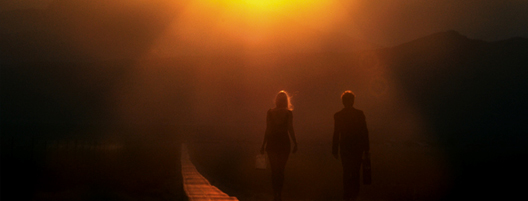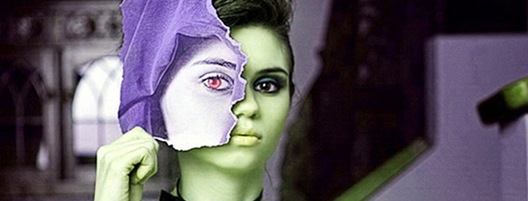DETERMINISM AGAINST HUMAN FREEDOM
By William Egginton*
<<<<<<<<<<<<<<<<<<<<<<<<<<<<<<<<Click aquí para leer el artículo en español>
As Sam Harris reports at the outset of his latest venture into popular philosophy, Free Will, recent neuroscientific data is showing that researchers can use EEG, MRI and other brain imaging technologies to predict with a high level of accuracy what a human test subject will decide, 300 milliseconds before they are aware of making the decision.
The implications are immediate. If researchers can predict what human beings will decide before they themselves know it, what is left of the notion of human freedom? How can we say that humans are free in any meaningful way if others can know what their decisions will be before they themselves make them? Research of this sort can seem frightening for many reasons. This is probably because an experiment that demonstrated the illusory nature of human freedom would, in many people’s mind, rob the test subjects of something essential to their humanity.
According to Harris and philosophers like Galen Strawson, we live in a deterministic universe, and if the concept of free will has any importance at all it is merely as a kind of necessary illusion. My position is precisely the opposite: free will does not need to be «saved» from determinism, because there was never any real «threat» there to begin with.
The reason for this is that when we assume a deterministic universe of any kind we are implicitly importing into our thinking what I call, borrowing from Richard Rorty, the code of codes, a belief that the ultimate nature of reality is a kind of knowledge waiting to be decoded; but this model is not only false, it is logically impossible.
To make a choice that in any sense could be considered «free,» we would have to claim that it was at some point unconstrained. But, the hard determinist would argue, there can never be any point at which a choice is unconstrained, because even if we exclude any and all obvious constraints, such as hunger or coercion, the chooser is constrained by (and this is Strawson’s «basic argument») how he or she is at the time of the choosing, a sum total of effects over which he or she could never exercise causality.
According to this logic, responsibility must be illusory, because in order to be responsible at any given time an agent must also be responsible for how he or she became how he or she is at that time, which initiates an infinite regress, because at no point can an individual be responsible for all the genetic and cultural forces that have produced him or her as he or she is. But we can now quickly see that this logic is nothing other than a philosophical version of the code of codes, in that it assumes that the sum history of forces determining an individual exists as a kind of potentially legible catalogue.
The point to stress is that this catalogue is not even legible in theory, for in order to be known it must assume a kind of knower who is unconstrained by time and space, a knower who could be present from every possible perspective at every possible deciding moment in an agent’s history and prehistory. Such a knower, of course, could only be something along the lines of what the monotheistic traditions call God. But as Kant made clear, it makes no sense to think in terms of ethics, or responsibility, or freedom when talking about God; to make ethical choices, to be responsible for them, to be free to choose poorly, all of these require precisely the kind of being who is constrained by the minimal opacity that defines our kind of knowing.
This constraint of «how he or she is,» then, is pure fiction, a treatment of real, tangible reality as if it were decodable knowledge. It is a sentence that appears to indicate some reality, but that would require for it to be put to any kind of use (say, in determining the cause of a given decision) a kind of God’s eye perspective capable of knowing every instance and every possible interpretation of every aspect of a person’s history, culture, genes, and general chemistry, to mention only a few variables. It refers to a reality that self-proclaimed rationalists and science advocates pay lip service to in their insistence on basing all claims on hard, tangible facts, but is in fact as elusive, as metaphysical, and ultimately as incompatible with anything we could call human knowledge as would be a monotheistic religion’s understanding of God.

As much as we owe the nature of our current existence to the evolutionary forces Darwin first discovered, or to the cultures we grow up in, or to the chemical states affecting our brain processes at any given moment, none of this impacts on our freedom. I am free, not because a ghost inhabits the machinery of my brain, or because that machinery cannot yet be adequately mapped; rather, I am free because neither science nor religion can ever tell me, with certainty, what my future will be and what I should do about it.
Can we just replace the proverbial bliss say that freedom, in the end, is nothing but ignorance? Perhaps we can; but the rub lies in how we understand ignorance. The commonplace understanding would miss the point entirely: it is not ignorance against the backdrop someone else’s knowledge or of ultimate knowledge that equates to freedom; rather, it is constitutive, essential ignorance. This, again, needs expansion.
Knowledge can never be complete. This is the case not merely because there will always be something more to know; rather, it is so because completed knowledge is oxymoronic, self-defeating. AI theorists have long dreamed of what Daniel Dennett once called heterophenomenology, the idea that, with an accurate-enough understanding of the human brain my description of another person’s experience could become indiscernible from that experience itself. My point it not merely that heterophenomenology is impossible from a technological perspective or undesirable from an ethical perspective; rather, it is impossible from a logical perspective, since the very phenomenon we are seeking to describe, in this case the conscious experience of another person, would cease to exist without the minimal opacity separating his or her consciousness from mine.
Analogously, all knowledge requires this kind of minimal opacity, because knowing something involves, at a minimum, a synthesis of discrete perceptions across space or time. The Argentine writer Jorge Luis Borges demonstrated this point with implacable rigor in a story about a man who loses the ability to forget, and with that also ceases to think, perceive, and eventually to live, because, as Borges points out, thinking necessarily involves abstraction, the forgetting of differences. Because of what we can thus call our constitutive ignorance, then, we are free—only and precisely because as beings who cannot possibly occupy all times and spatial perspectives without thereby ceasing to be what we are, we are constantly faced with choices. And all these choices have at least some element that cannot be traced to a direct determination, but could only be blamed, for the sake of defending a deterministic thesis, on the ideal and completely fanciful determinism of how we are at the time of the decision to be made.

Far from a mere philosophical wish fulfillment or fuzzy, humanistic thinking, then, this kind of freedom is real, hard-nosed, and practical. Indeed, courts of law and ethics panels may take specific determinations into account when casting judgment on responsibility, but most of us would agree that it would be absurd for them to waste time considering philosophical, scientific, or religious theories of general determinism. Philosophically speaking as well, then, this real and practical freedom has nothing to fear from philosophical, scientific, or religious pipedreams.
____________
*William Egginton is the Andrew W. Mellon Professor in the Humanities and Chair of the Department of German and Romance Languages and Literatures at the John Hopkins University, where he teaches on Spanish and Latin American literature, literary theory, and the relation between literature and philosophy. He is the author of How the World Became a Stage (2003), Perversity and Ethics (2006), A Wrinkle in History (2007), The Philosopher’s Desire (2007), and The Theater of Truth (2010). He is also co-editor with Mike Sandbothe of The Pragmatic Turn in Philosophy (2004), translator of Lisa Block de Behar’s Borges, the Passion of an Endless Quotation (2003), and co-editor with David E. Johnson of Thinking With Borges (2009). His most recent book is In Defense of Religious Moderation (Columbia University Press, 2011).

